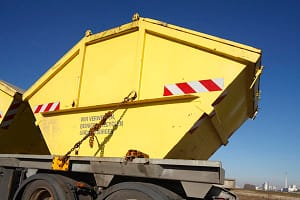London’s construction industry is facing a dual challenge: the pressure to build more and faster, while also adhering to strict sustainability targets. In this environment, an efficient approach to waste management is not just a regulatory necessity – it is a competitive advantage. For many businesses, the traditional model of transporting and disposing of construction and demolition waste is a costly and inefficient process. This is why forward-thinking companies are turning to on-site wash plants, viewing them not as an expense, but as a strategic tool for profitability.
Beyond waste: Creating a new revenue stream
The biggest financial advantage of a modern wash plant is its ability to turn waste material into a new revenue stream. Instead of paying to transport and dispose of demolition rubble, a business can use a wash plant to process this material on-site. The plant effectively cleans and sorts the debris, separating valuable aggregates and sand from contaminants. This recycled material can then be used in the same project as a sub-base or sold to other businesses, creating a source of income from what was previously a cost centre.
A bespoke solution for London’s challenges
London’s unique urban environment presents a host of logistical challenges for construction, from tight spaces to limited access. A one-size-fits-all approach to waste management is often ineffective. This is where the expertise of a company that designs, manufactures, and installs bespoke wash plants becomes invaluable. By working with a specialist, a business can get a system that is perfectly tailored to its specific materials, site layout, and production goals. This strategic approach ensures the plant operates at peak efficiency, minimising downtime and maximising the value of every resource.
A sustainable investment with a financial payoff
In an era of increasing environmental awareness, sustainability is a key factor in winning new business. The UK is committed to a circular economy, and a modern wash plant is a direct way for a business to demonstrate its commitment to this goal. By recycling on-site, a business reduces its carbon footprint, lowers its reliance on newly quarried materials, and enhances its brand reputation. This is not just a good environmental practice; it is a smart financial one, as clients and stakeholders are increasingly favouring businesses that have a clear and demonstrable commitment to a sustainable future.






Leave a Comment